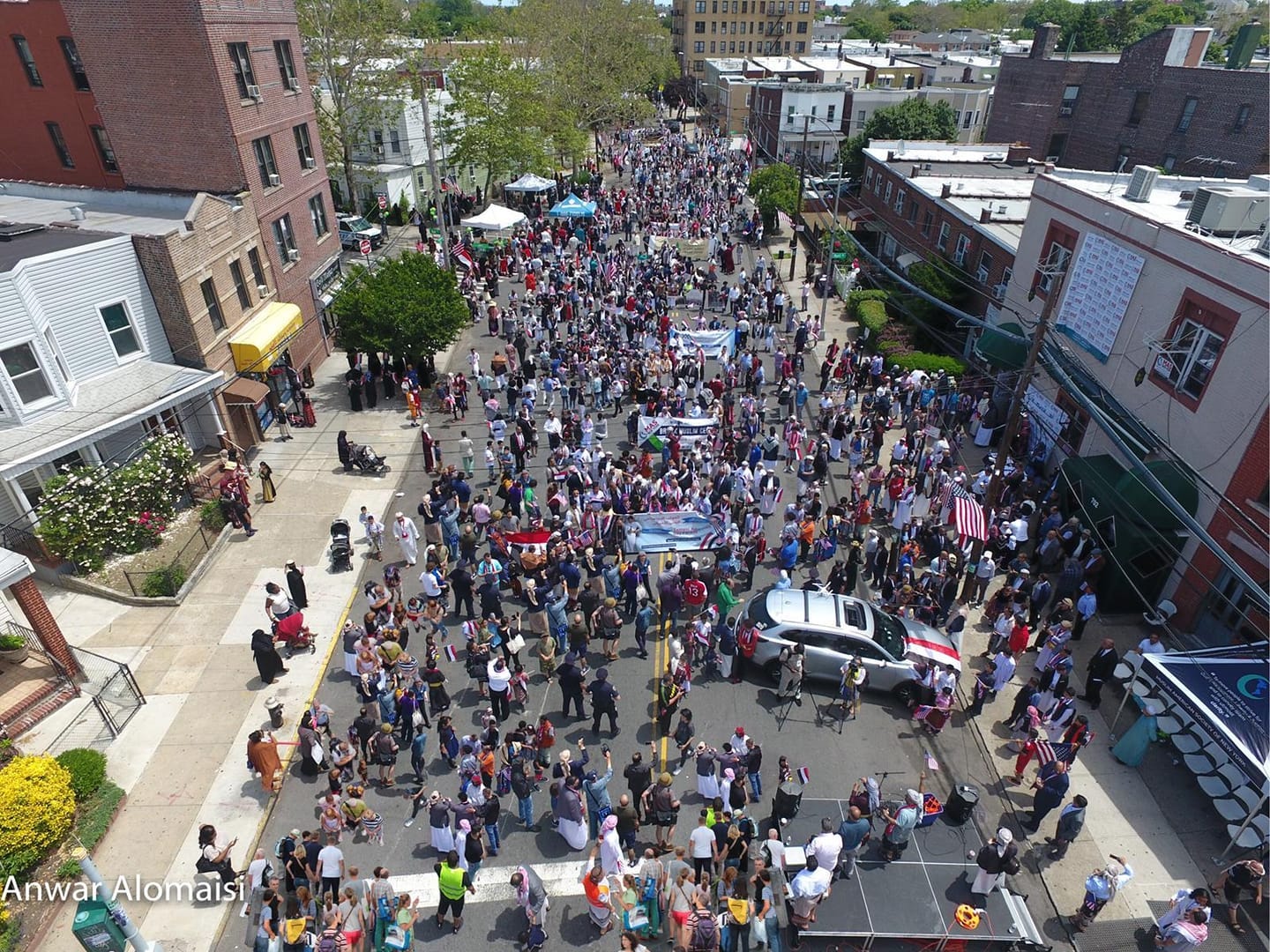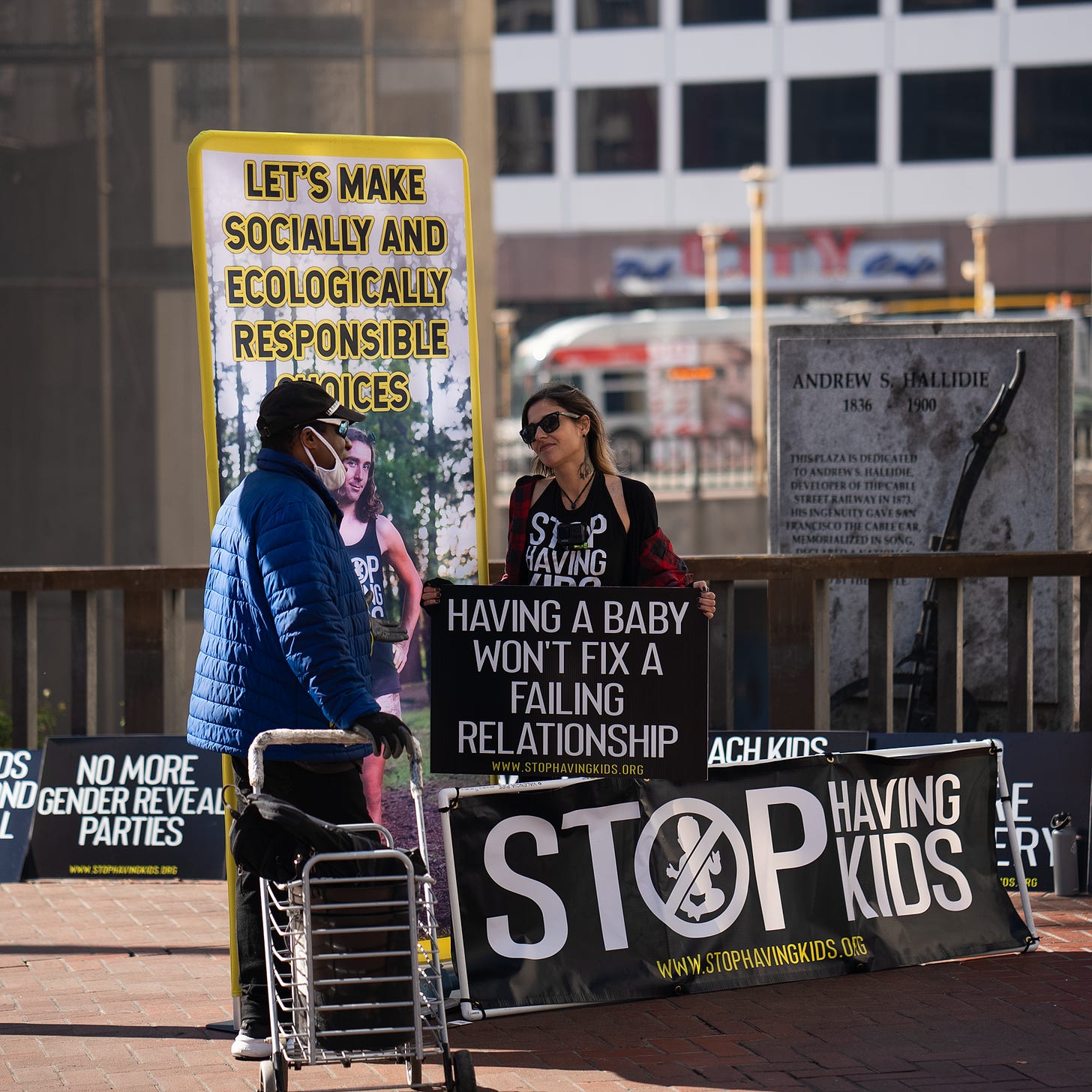Malthus and Trump are wrong about people
We create more than we consume. That's why civilization.
Malthusian catastrophes don’t happen.
Not among humans, anyway. Some simpler life can go through Malthus’s process: grow exponentially in population until you don’t have enough food, then die off. But we don’t do that.
Thomas Malthus’s chief opponent, William Godwin, made some sketchy arguments against him but also hit on this killer one: if this is a thing, why has it never happened? The difficulty of navigating oceans means that we effectively had multiple parallel experiments running. Once we were all able to reunite and compare notes, none of us remembered a time when our population had been a lot larger. So, Godwin pointed out, either in an astonishing coincidence every human civilization had been right on the verge of its first overpopulation event, or overpopulation events don’t happen.
There are some very similar things that do happen, unfortunately. Plague, mostly. That same isolation that created the natural experiment also made the Columbian Exchange, where Americans got smallpox and Europeans got syphilis, into a catastrophe—neither continent had built up immunity to the other’s germs. And there’s incidents like the Irish Potato Famine, which is the most popular choice when people go looking for actual examples of Malthusian catastrophes.
But these blights on crops, when they rise to the level of catastrophe, don’t do so because of population. The Irish didn’t hit some limit on their land where there was nowhere left to grow potatoes. No, they were victims of the two classic causes of famine, both hitting at once: a plague killing off their staple crop, and the British coming and stealing their food. (I do mean specifically the British. In part because they believed in Malthus’s ideology, they merrily caused mass famine all over the world, blithely assuming it was inevitable.)
We can demonstrate this by checking in again with our experimental arm in the Americas. The Incas, the original potato growers, had a population estimated1 to be larger than Ireland’s 8.5 million. They must have had potato blights, but they also had qullqas, a vast network of food storage sites they used to get through them. More people means more potatoes, and therefore potentially more chances for a disease attacking them to evolve and spread. But it also means more people to invent and build resilient designs and resilient institutions, and more people to specialize in growing other crops.
People create problems, but, on average, we create more solutions. The terrible impact of the 1346 Black Death in Europe wasn’t caused by Europe having too many people (they had less than 13% of their current population), but by not having access to the infrastructure that let us invent, test, and deploy innovative vaccines. In 2020, the work of a Hungarian-born scientist, performed mostly in the U.S. and funded mostly by a German biotech company, meant that despite Europe’s vastly increased population, they suffered far fewer deaths. And there’s reason to be optimistic that we can adapt the core idea to new plagues as they arise.
People mostly didn’t believe in Katalin Karikó’s work. She was demoted and denied tenure because her efforts seemed too unlikely to bear fruit (and because university politics). But she was funded anyway. Our civilization was large enough that we could, collectively, shrug and say “what the hell, she’s probably a crank but let’s kick her a few million dollars just in case.” That’s what growth gets you: the ability to have so many just-in-cases that we get to mitigate disasters. So long as we (and any heavily-armed neighbors) remember to think in terms of resiliency, not scarcity.
There’s no reason not to expect the same principles to apply to anthropogenic climate change, which is definitely a “lots of humans”-specific problem, but has lots of humans tackling solutions and adaptations.
(I do worry our own ingenuity will eventually provide an exception to this rule. But since that doom will come from elites it’s not something we can easily avert through depopulation.)
Immigrants are not an exception
Does increased immigration make us stronger, weaker, or weaker at first and then stronger later? The United States has performed two different experiments on unrestricted immigration. The first was for our first hundred years of existing, where we had no restrictions nationwide. There was no official path to citizenship if you weren’t White, but the borders were open. The result was, well, America. A global economic, military, and cultural superpower.
Nowadays we know we need to have a control group, though, so we’re running the experiment again but only in half the country. Do areas that cooperate with ICE do better or worse than sanctuary cities and towns?
The experiment has been running long enough, in an inspiring case of bipartisan cooperation, that we have some pretty robust results. A study of 3,000 U.S. counties between 2013 and 2017 found, from the abstract,
We can infer that SC [sanctuary city] policy probably is a significant driver of economic development…and can contribute to reversing economic decline.
Their data actually comes from ICE. A big part of how immigration enforcement operates is that if anyone is in jail for any reason, and their immigration status can’t be easily verified, ICE will ask the local sheriff to keep them in jail until they can check. At this point, some places regularly comply and some don’t. The researchers used FOIA requests to get ICE’s list of which was which. By 2017, property values in the non-compliant counties had grown by 5.5% more than in compliant counties, among other indicators.
I like this methodology because it’s laser-focused on Trump’s main target for deportation: undocumented immigrants who’ve had some unrelated run-in with the law. Like, consider a county that aggressively courts immigration, has aid programs for newcomers, displays “In This House We Believe No Human Is Illegal” signs on front lawns, and never proactively goes after suspected undocumented immigrants, but if someone is arrested and ICE specifically asks, they’ll cooperate. That’s an anti-immigrant county by this study’s definition. To be a sanctuary county, all you have to do is nothing, just ignore ICE and follow your regular judicial process. And then you see immediate returns on your lack of investment. Because having more people around is better, even if they’re foreigners with a record.
People get confused about this because “illegal immigrant” is a marked category. If you have a Trumpian media diet, any news article involving an illegal immigrant being arrested will call out their immigration status, while news articles about citizens won’t. So you get a bunch of negative anecdotes about “illegals,” and no negative anecdotes about “legals” because nobody writes “A legal U.S. citizen was arrested today after allegedly…”
But they have it worse, much worse, than people in other marked categories, because they can’t use the typical counter where you share positive anecdotes. When someone does something good, it’d be a dick move to check their papers or write about how an undocumented immigrant rescued a snowy owl. The only ethical way to collect positive anecdotes is to wait until they get caught, then look back at their history.
In 2016, a Maryland pastor ran into a burning building to rescue people trapped there. Right afterwards, in all the stress and oxygen deprivation, he made the mistake of giving his full name to CBS. CBS, of course, didn’t look into his immigration status. They called him and other rescuers “very heroic,” without making any kind of political point about it. But his name and location were published, for immigration enforcers to eventually scrape and cross-check. Two years later, he was commuting to work, stopped to get coffee, and was detained by ICE.
One good deed can be enough to condemn a man, but not enough to redeem him. He spent three months in federal prison awaiting a hearing, one where the judge did not allow any testimony about his heroism. Being an asset to your community isn’t, legally, any defense for belonging to it. The judge ultimately decided not to deport him because he’d be in danger in Guatemala, but didn’t change anything about his legal status. ICE had tricked him into formally renouncing his right to claim asylum, so he’s still just one false step away from prison. He’ll be deported, without the right to a criminal trial, if he’s ever arrested.
Or if ICE just feels like it one day, as apparently happened to Anwar Alomaisi, a long-time resident of my home county of Westchester, New York. For 22 years, he worked as a photographer, paid his taxes, volunteered with the Red Cross and local groups, was never arrested, and checked in regularly with federal immigration authorities. In 2020, he went to one such check-in and was deported to Yemen. As George Latimer, our soon-to-be representative in Congress, says, “Westchester County is not a sanctuary.” We don’t go out of our way to help ICE, but we do comply.
These cases are atypical. The vast majority of people the U.S. deports were at least arrested for something. Maybe even indicted or convicted. (ICE generously lets you serve out your full prison sentence and then deports you the day you’re released.) But that doesn’t actually mean they were net negative to society, just that it’s harder to paint them as unambiguous heroes.
Except. Wait. Isn’t there a large group of people who we call heroes but then generally treat terribly? Right. Veterans.
Recruiters often lead immigrants to believe that enlisting will automatically make them citizens, or that the army will help them with the naturalization process. So they serve out the term of their enlistment, during which time whatever temporary visa they had expires, only to discover that actually they were “permanent residents” only until they left the military. They come home with injuries causing chronic pain, buy illegal opiates to self-medicate, and are arrested and deported. Or they have a PTSD episode in a public place, and ditto. Or they do an actual crime, with a victim and everything. But it looks like the most common reason we deport veterans is pot.
According to the General Accounting Office, we actually don’t know how many veterans we’ve deported, because ICE doesn’t reliably record who it’s deporting. They were able to find about 250 in the records, but some estimates are in the tens of thousands. Thank you for your service.
In addition to the economic studies, similar studies have found that sanctuary cities are no more dangerous than those in the control group. There’s no statistical indication that undocumented immigrants are more prone to violent crime. Just anecdotes. Plenty of undocumented immigrants have done terrible things. But, like everyone else, as a group they do more good than bad. They’re just a convenient target because the good is underreported for their own protection.
Convenient targets like this are how movements like Trump’s gain traction. LGBT people are an evergreen target for the same reason—when a guy runs into a burning building to save a baby, nobody asks him if he’s trans. The more entrenched and dominant they get, though, the more arbitrary they can get away with being.
Remember, you’re a type of person. If someone wants to stir up bigotry against you, they can. As demonstrated here, if someone’s annoyed at a cardiologist, it’s the work of an afternoon to create anti-cardiologist propaganda without ever technically lying. The end state of Trumpiness, when successful, generally looks like China, Russia, or Nazi Germany. Once you’re willing to believe that some group of humans needs to be oppressed for the good of the whole, the same logic will be turned on you as soon as the state finds it convenient.2
Babies aren’t an exception either
When I was searching for studies on the economic effects of sanctuary policies, mixed in with the actual data were pieces like this one from the Heritage Foundation, about how expensive it is to provide social services for immigrants. These are simple to rebut with data, because we get our return on investment so quickly—sure there are some up front costs, but new sanctuary counties start seeing the benefits after two or three years. If they were writing about babies, it’d be harder. Babies require far more state spending before we ever start seeing a dime in taxes for our effort.
The Heritage Foundation is, hypocritically, against human extinction, so they give a pass to these tiny useless immigrants who definitely don’t speak English. But you do see versions of their argument applied to infants.
There are other ethical arguments for anti-natalism that I won’t go into here (Ed: But Connor Jennings just did and with some delightful rebuttals), but the more consequentialist ones tend to be Malthusian and therefore just…wrong. Kids become adults. Adults, on average, make the world better. Including the environment. Having kids is the socially and ecologically responsible choice. (If you want. There are plenty of other ways of contributing.) Expanding the sphere of human influence reduces wild animal suffering. Even if you think that existence itself is net-negative, it’d be selfish of us to go extinct before at least destroying our home planet. Which, to be clear, I don’t think we should.
Gender reveal parties are cursed, though.
The Post-Malthusian Prior
While we’re talking babies, what about Baby Hitler? That whole thought experiment gets its sting because the demographic that consists of just Adolph Hitler, and nobody else, actually is net-negative in impact. So it is possible for such groups to exist.
I’m fine with having most of us just use the simple “all bigotry is taboo” rule. But if you’re an aspiring rationalist who considers it your duty to entertain taboo thoughts, here’s a slightly more nuanced takeaway. The prior probability for a type of person being net harmful is very low. If somebody comes to you and says “people with this gene are 0.5% more likely to commit a crime, so we should screen for it and abort,” remember that even if all of their assumptions are right, that’s not anywhere near a large enough effect size to offset the value we expect those people to create. After all, even the intervention of deporting adults who have an arrest record harms communities, on net.
It’s about time to end our twenty-year-long experiment on the effects of unrestricted immigration. We have the results. Keeping it going only harms the control group.

They did keep census records, but then conquistadors killed off everybody who knew how to read them, so we don’t know what they said.
I was thinking of using “left-handed people” as an example here, and looked up historical attitudes towards them, and apparently the Inca revered left-handers. This blog is now an Inca appreciation blog.









